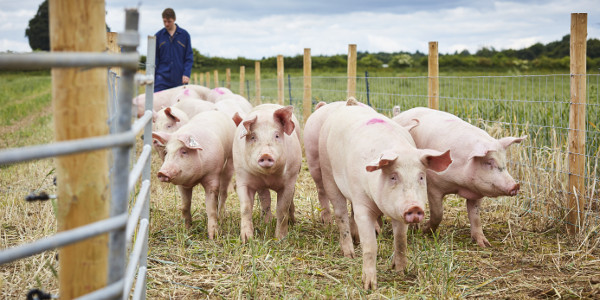Leeds University has unveiled plans of a £7 million investment into Pig Research alongside the government-funded Centre for Innovation and Excellence in Livestock (CIEL). The majority of the funding will be provided by the university and will enable Yorkshire to become one of the leading places in Europe for pig research.
The University and CIEL plan to invest in new facilities that will be launched at the University’s farm to carry out research into outdoor-reared pigs and an upgrade to their indoor-reared pig centre. The University’s current pig herd of 200 will be upgraded to 600.
The new equipment and facilities will include:
- Equipment to automatically feed and monitor what each pig consumes.
- CCTV network to monitor the pig herd 24/7.
- Teaching centres and on-site laboratories to complement high-spec campus labs.
- New animal accommodation including flexible penning and birthing arrangements.
- Technical facilities to identify each pig genetically through its DNA.
- Devices which will let pigs choose what they want to eat, and monitor their choices.
The research will primarily focus on themes identified by the livestock industry, such as animal nutrition, production systems and reproduction, and behaviour and environment.
Among the most prominent outcomes from the research is a greater ability for researchers to make feed recommendations for pigs to keep pace with ongoing genetic improvements.
“Animal feed is the largest variable cost which the industry bears,” said Helen Miller, director of the Leeds University farm.
“One of the areas we will study is how to improve outdoor sow nutrition to maximise the well-being and productivity of individual animals. This should also result in improved profitability, providing significant support for individual farmers and for larger businesses across the rural economy.”
Dr Mark Young, CIEL’s head of innovation stated that “CIEL is investing in world class facilities to empower our world class scientists with the aim of driving innovation to enhance livestock food production across the supply chain.”
Jangira Lewis
(Image: University of Leeds)

